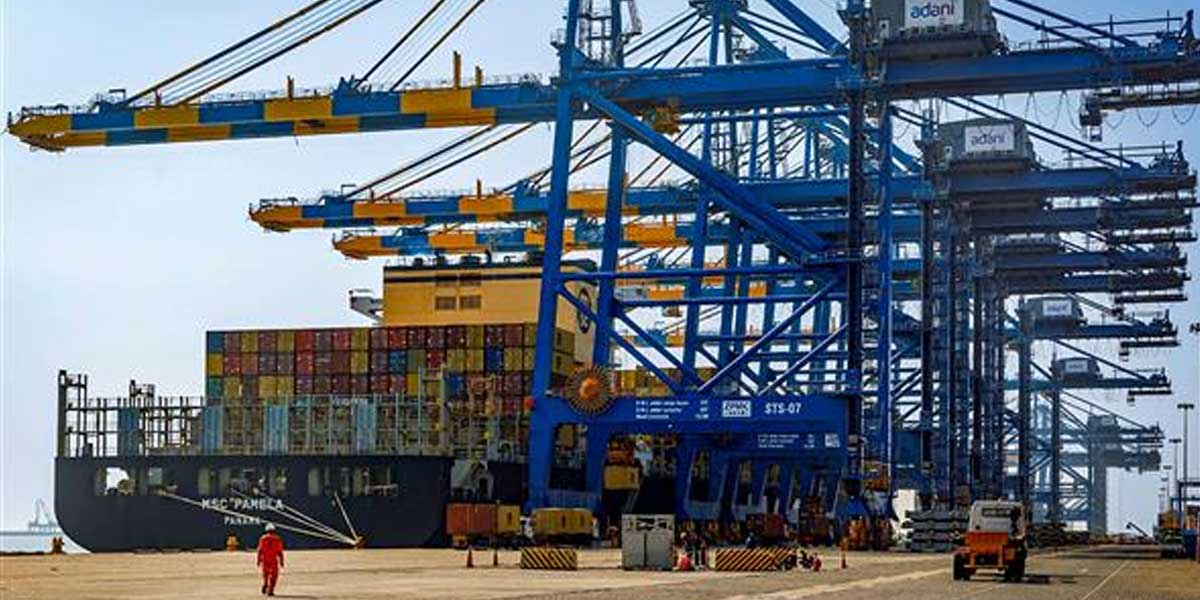Adani Ports and Special Economic Zone Ltd (APSEZ), the largest integrated transport provider in India and a part of the varied Adani Group, handled 32 MMT of total cargo in March 2023, an increase of 9.5% over the same month the previous year. The volumes ultimately crossed the 30-MMT mark after July 2022. The APSEZ reported its greatest port cargo volumes ever in FY23 (April 2022–March 2023), totaling 339 MMT, showing a healthy 9% year-over-year increase. Adani Ports has steadily increased its market share over the previous few years, exceeding all growth in India's freight tonnage.
“The improvement in cargo volumes is testimony to the faith that our customers have in us,” said Mr Karan Adani, CEO and Whole Time Director, APSEZ. “It shows our commitment to using improved efficiencies and technological integrations to drive and achieve customer satisfaction. The APSEZ’s flagship port, Mundra, is outpacing all its closest rivals and continues to be the largest port in the nation in terms of volumes handled. Mundra’s infrastructure meets world standards and provides service levels on par with those of its global competitors, making it India’s gateway for container goods.”
The total number of containers handled by APSEZ in India climbed to 8.6 MTUs (+5% YoY), with Mundra alone producing 6.6 MTEUs. It is still India's largest seaport, handling 155 MMT of cargo during the year. Furthermore, the logistics industry had a successful year. The number of TEUs handled by container rakes reached a new high of 500,000 (+24% year on year), while the volume of bulk cargo transported exceeded 14 MMT, marking a 62% year on year rise. APSEZ set several new records this fiscal year in terms of ships docked (6,573), rakes serviced (40,482), and trucks, trailers, and tankers handled (40,482). (48,89,941). Adani Ports served 3,068 different customers through its various business units.
Growth in cargo volume at ports is a sign of a prosperous economy. The majority of trade in India—nearly 95% of total trade volumes—is transported by sea. The Indian coastline must therefore have top-notch mega ports. Over 90% of the Indian hinterland is now covered by APSEZ's deliberately constructed network of ports, ICDs (inland container depots), and warehouses that are intricately interwoven with self-owned rakes.
Clients of APSEZ can transfer larger vessel parcels because of APSEZ's ability to maintain deep draft ports, lowering their overall logistics costs. Companies can export goods due to lower logistics costs, which benefits the domestic economy and employment rate. Mundra handled the largest vessel ever handled by any Indian port, MSC Fatma, with a length of 366 meters and a carrying capacity of 15,194 TEUs, as well as the deepest container ship, MSC Washington, with an arrival draft of 17.0 meters. The port's first LNG-fueled tanker, Aframax Crude Oil Tanker, was also berthed at its SPM facility. The 14-meter draft has a total displacement of 1,26,810 MT.
Krishnapatnam Port, one of India's ports that can accept cape-size boats with deeper depths, has the highest departure draft ever observed in Indian maritime history. The MV NS Hairun, a cape-size vessel carrying 168,100 tons of iron ore and having a maximum draft of 17.85 meters, departed the port. The MV SHINYO GUARDIAN delivered the largest gypsum shipment, weighing 163,781 MT.
The largest dry bulk parcel size vessel, MS Tristar Dugon, discharged 76,250 MT of gypsum at Kattupalli, and Hazira received the largest over dimensional cargo (OCD) with a volume of 45752 cubic meters. Other ports also saw heavy traffic. Dahej received "MV STAR OPHELIA," carrying 1.24 lakh MT of gypsum cargo.
As a result of engagement with container lines and the resolve to meet requirements, several more services have been added to APSEZ terminals, increasing volumes. While Krishnapatnam scored an all-time high gypsum discharge of 1.17 MMT, Hazira reported the highest sugar cargo volume ever at 1.15 MMT, up from 0.95 MMT previously. While Dhamra delivered 1,57,000 MT of iron ore on the MV Mojo, which had a 17-meter draft, and Kattupalli recorded a 58% increase in container capacity, Gangavaram shipped the most alumina bulkers in a single day.
Mundra allows ships to berth instantly because it has the quickest turnaround time for vessels. It has accomplished great feats and set new benchmarks by putting a strong emphasis on initiatives that are focused on the needs of the customer and operational efficiency improvements. In comparison to the previous high of 1.87 lakh cars, this financial year saw the largest RO-RO volume handled at 2.09 lakh. This increase is the outcome of the trust that longtime client Maruti Suzuki India Ltd has placed in the company.
At all of its ports, APSEZ consistently attempts to diversify the cargo. This year, Dighi Port handled sugar for the first time, and Dhamra handled its first rice vessel for export to Bangladesh, while Krishnapatnam Port successfully added soybeans, edible oil, and sugar to its cargo portfolio.
The achievement of APSEZ proves its ability to adapt to rapid changes caused by geopolitical unpredictability and continue on its path to sustainable growth. Improved port infrastructure is necessary for India's $5 trillion economy since it leads to enhanced logistical performance, increased seaborne trade, and stronger economic growth.
See also:
Adani Ports crosses 300 MMT cargo handling
Adani Ports acquires Karaikal Port for ₹1,485 crore




















